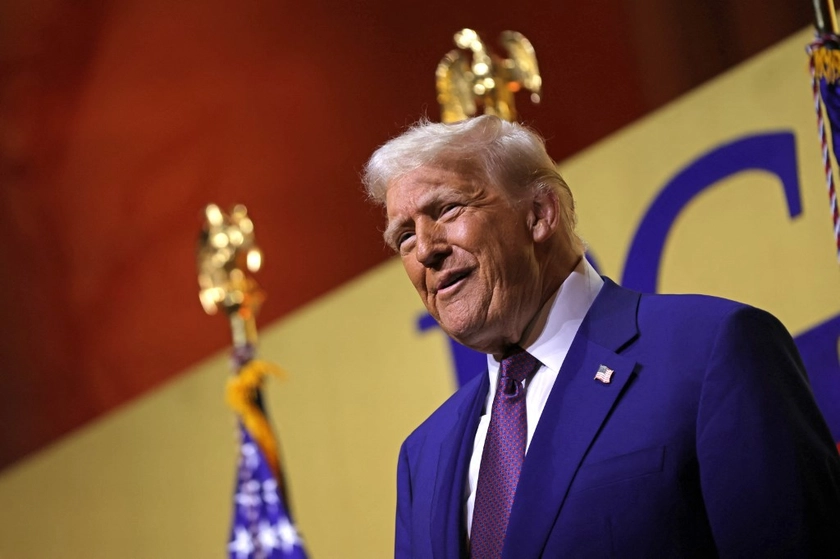The latest consensus-based forecast by leading analysts for economic dynamics in the Eurozone suggests that the recession is not threatening Europe. Does that mean the worst is over?
Not quite. Firstly, the new forecast envisions 0.1 percent economic growth – far from a convincing figure. And it should be understood that it is a consensus-based outlook, meaning an arithmetic mean of figures forecast by a multitude of economists. As we can see from this “0.1 percent,” there are both negative and positive forecasts, the latter prevailing slightly.
JOIN US ON TELEGRAM
Follow our coverage of the war on the @Kyivpost_official.
Actually, 0.1 percent growth and 0.1 percent reduction have equally little economic effects.
The situation resembles that with the euro-dollar exchange rate: not long ago, the dollar strengthened a little against the euro, creating tempests in the teacups of emotional Ukrainians. But nothing significant resulted from a couple of weeks of the exchange rate changing by two or three percentage points.
Now, the good news.
Firstly, it is about the dynamics. It is always more important to look where you are going than where you are. Here, we see better outlook dynamics, and it is extremely important because psychology is a weighty factor. If you believe that there will be a crisis, you stop investing and start saving. Then, as a result, you get a crisis. After all, economic growth essentially and exclusively depends on investment, not on government policies, growth points or other homeopathic measures.

Trump Gives Europe 3 Weeks to Accept Ukraine’s ‘Surrender,’ Says European Lawmaker
Over the recent months, forecasts for Europe’s economic prospects given by all economists have become more positive, being increasingly based on falling prices of energy resources, especially natural gas, and the reopening of China, which is abandoning its erroneous Zero-COVID strategy.
Incidentally, the latter shows that it is too early to bury globalization. Yes, Putin’s war has increased geopolitical risks and affected global trade, but the world remains globalized. The EU and the U.S. remain China’s biggest trading partners and China remains the key market for Europe. And that is one of the reasons for China & Co. not to risk everything by supporting Russia.
The money logic shows the right way, and Comrade Xi, having been reelected, seems to be guided by this logic, judging by his steps to restore relations with Europe. That is very positive for European economies, especially Germany, as the EU’s locomotive. For decades, Germany’s business model relied on cheap energy supplies from Russia and sales of expensive goods to China. Now Russian energy supplies are history and the Germans will not repeat this mistake, but it is extremely important for them to retain the Chinese market.
Secondly, the very fact of the figure being positive is likely to produce a positive effect. Yes, it is a mere 0.1 percent, but it is very likely to stop all talk of recession. With the loom out of their minds, ordinary people and business leaders will make decisions in a different way. It will be easier for businesses to invest and for people to spend their money, which in turn will benefit businesses. What Russian propagandists call a “consumer society” is the driver of economic growth and, subsequently, higher living standards.
Apart from that, Russian propagandists’ “European crisis” mantra will fall flat again. Surely, they will think up something again, but the positions of pro-Russian political forces will be weaker, which means yet another blow to Putin’s strategy for disuniting the EU.
The bad news is about oil prices. They dropped under the pressure of negative economic outlooks, among other factors. Now, with positive outlooks, they are rising and so reducing pressure on Russia’s economy. The price of Brent oil has risen by more than 10 percent in the past two weeks. Things are more complex and intricate with Russian oil due to absolute non-transparency, but it is obvious that Russian oil will be easier to sell, and sell higher too, if global prices grow.
So, can we close the books on the issue of recession? Not yet. Discount rates are rising and money is becoming more expensive both in the U.S. and the EU, and no one can predict what will come out of it all. No one can rule out a repetition of the 2008 burst bubble crisis. So far so good, the bubbles have not burst because they are being cleverly deflated. But it’s very hard to rid an addict of his addition. Likewise, it’s hard to wean economies from the cornucopia of cheap money. Discount rates might still be raised to a point of unpleasant surprises.
Now, what about Ukraine? Nothing special so far. Lying on the bottom, one never really cares if it is stormy or still on the surface. It does not really matter for European support for Ukraine whether the Eurozone economy grows by 0.1 percent or declines by 0.2 percent. After all, the EU has spent around €700 billion on energy independence projects alone. Compared with this monstrous sum, the €18bn the EU has earmarked for Kyiv seems a pittance. Our poverty saves us, however paradoxical it may sound. A poor man needs little money to keep things going. So does a poor country. Should Germany’s GDP fall by 30 percent, it would be absolutely impossible to make all the social payments. At the other end of the line, the sum total of Ukrainian pensions and other social payments is just a tiny bit for the rest of the civilized world.
You can also highlight the text and press Ctrl + Enter











